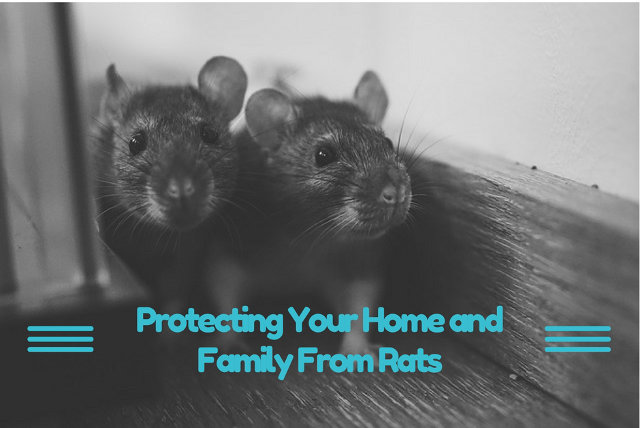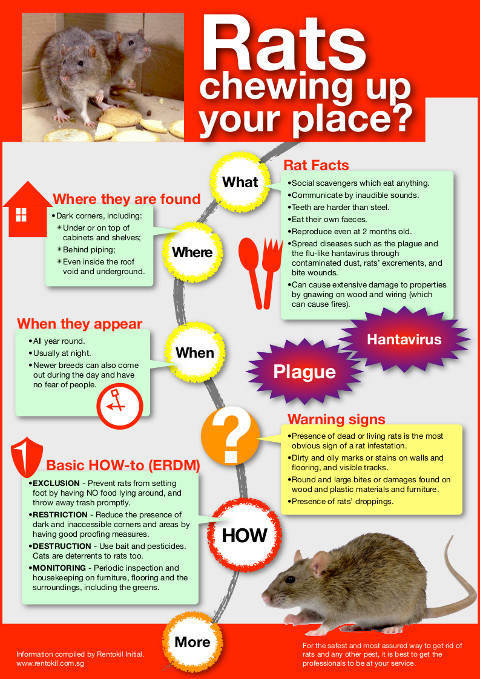Rats pose a significant health risk to humans and our pets. Common diseases carried by rats include Salmonella, Weil’s disease, E.coli and TB. Rats also carry fleas, mites and ticks and can cause acute allergic reactions.

Rats in the Home or Garden
It is extremely serious if rats are getting into your home even if they are not entering a direct living area. Any rat problem inside the home must be treated urgently. Rats in the garden and other external areas can also be high risk, particularly in areas used by children or pets. It is important to get rid of rats in the garden to reduce the risk of them trying to enter the home.
Special care is needed for properties with integral garages or with dog or cat flaps as rats can use these to get into the home.
Signs of a Rat Problem
Rats are nocturnal and usually hide from humans, so the typical signs of a rat problem in the home are:
- Scratching noises in walls or under the floor as rats scurry around
- Droppings – rats leave dark, tapered droppings about 10-14mm long
- Distinctive smell – rats leave an ammonia-like smell that will be particularly strong in enclosed areas such as under cupboards
- Damage – rats have teeth that grow continuously and gnaw on wood and plastic to keep them trim. Rats can even cause fires by chewing through cables.
- Ripped food packaging – rats will tear open food which may leave teeth marks
- Nests – rats build nests in warm, hidden places using shredded material such as newspaper and fabrics. Nests will often contain young rats
- Burrows – In gardens, rats will dig burrows especially in compost heaps or under sheds. They will also build nests under the garden decking.
How to Keep Rats Away
The first defense against a rat infestation is to proof your home. Young rats can get through holes of less than 1cm, so it is important to seal any holes and fit bristle strip around doors.
It is important not to attract rats with food – store food in plastic or metal containers and regularly clean under cookers and fridges.
Outdoors, ensure household refuse is kept in closed bins, do not put meat into compost heaps and use squirrel-proof bird feeders.
Rats can come up from sewers through broken pipes – it is important to ensure that all pipe-work is in good order.
How to Get Rid of Rats
If not treated, a rat infestation can quickly take hold. A wide range of DIY products are available in stores for dealing with rats in low-risk areas, but treatment by service technicians for rat activity in living areas or if the problem persists, is recommended.
Professional Rat Control
While amateur DIY products are a cost effective way to control rat problems in low-risk areas, professional pest control is required for high-risk areas, more established rat colonies or where there is a repeated infestation.
Pest Control service technicians provide highly targeted treatment to deal with any rat problem and will advise on how to keep your home free of rats in the future.

This article is contributed by Rentokil Initial.
If you find this article useful, do click Like and Share at the bottom of the post, thank you.
Want to be heard and seen by over 100,000 parents in Singapore? We can help! Leave your contact here and we’ll be in touch.















































Leave a Comment: